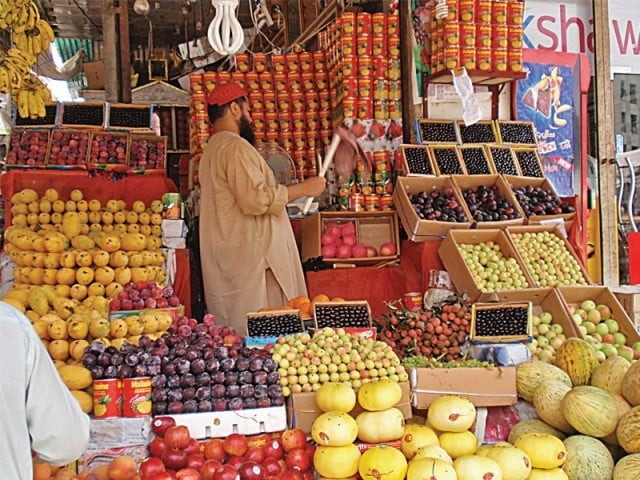Traders and wholesalers oppose the idea and warn it would trigger a new surge in inflation
Administration to set up sasta bazaars and 35 fair price shops in rural and urban areas PHOTO: EXPRESS
The Punjab government has decided to abolish all vegetable and fruit markets, as well as commission-based wholesale markets, in a bid to exercise complete control over the prices of food items, essential commodities, vegetables, fruits and groceries.
In their place, new Chief Minister’s Farmers’ Markets will be created. These will consist of government inspectors working under the direct supervision of the deputy commissioner.
At these markets, every vehicle, trailer and container carrying vegetables, fruits, pulses, sugar and groceries will be officially registered upon entry. The authorities plan to put the new markets into operation in the second half of December.
Under the decision, four fruit and vegetable markets and six wholesale markets in Rawalpindi division – and, across Punjab, a total of 42 fruit and vegetable markets and 70 commission-based wholesale markets – will be dismantled.
The new chief minister’s farmers’ markets will remain under the exclusive control of the government, with offices of the district administration, the price control magistrate and the district price committee, located there. All inflows of goods, including procurement and auctioning, will take place entirely under government supervision, thereby ending all private control.
However, Vegetable Market Traders Association President Ghulam Qadir Mir, Fruit Market Secretary Sajid Khan and Wholesale Market Traders Vice-President Shafiq Khan rejected the proposal. They urged the government to abandon such experiments and instead focus on good governance, warning that such measures would trigger a surge in inflation.
They argued that if the government was serious about introducing reforms, it should establish parallel markets and allow them to compete with existing wholesale and fruit and vegetable markets, as improvement naturally follows competition.
They further observed that the government failed to effectively manage utility stores or the Sasti Roti program; How, then, would it manage wholesale markets? They say the bureaucracy is trying to provoke direct conflict between the government and traders through such initiatives – a situation they have vowed to resist.




